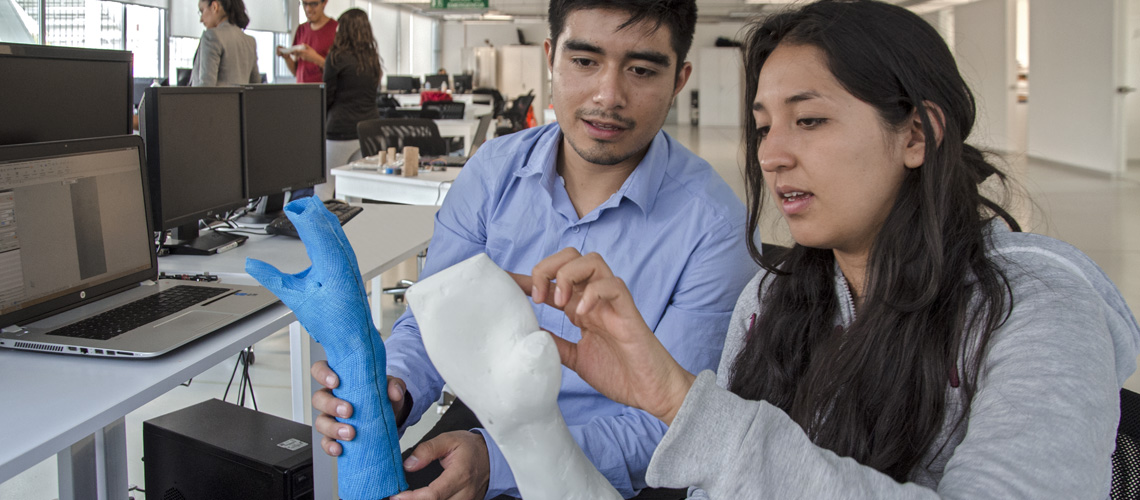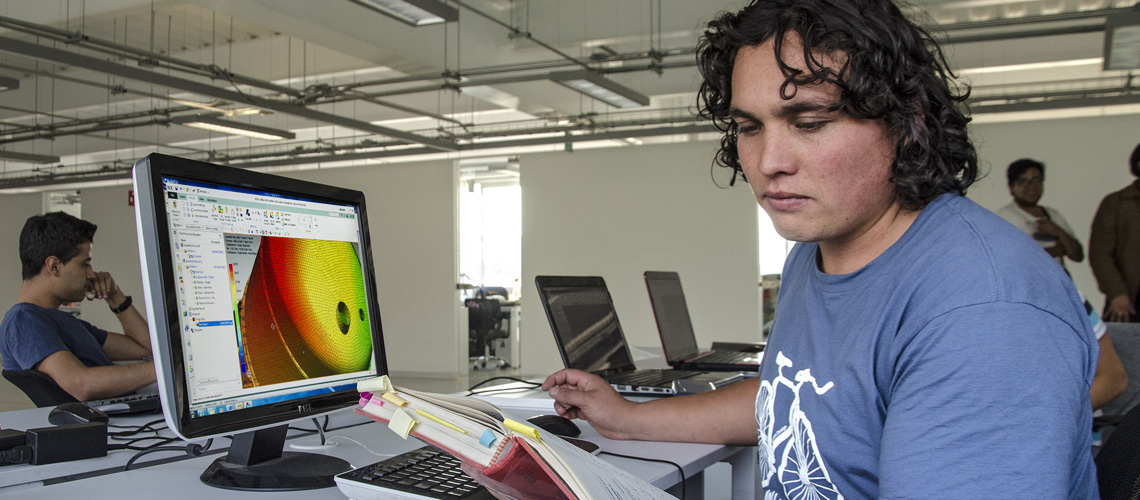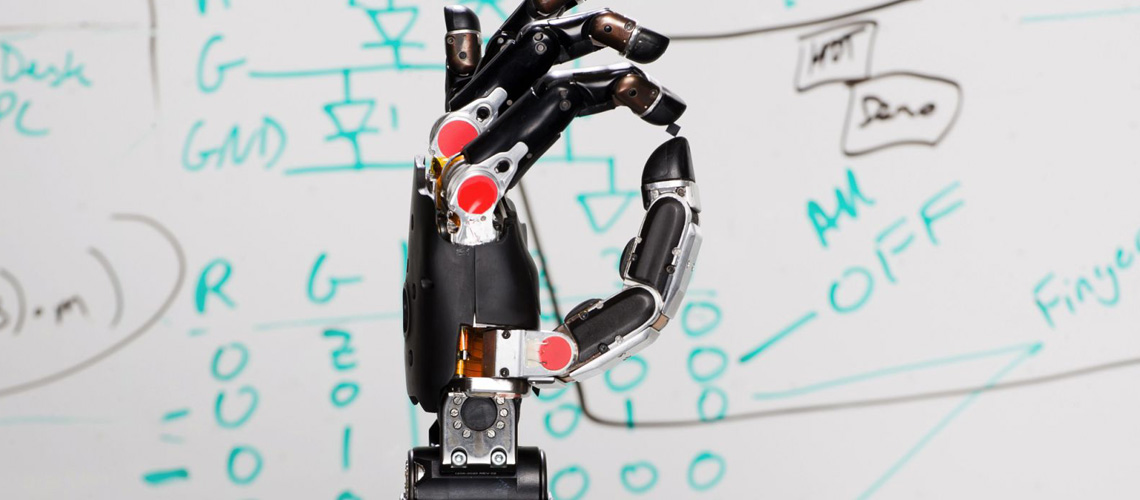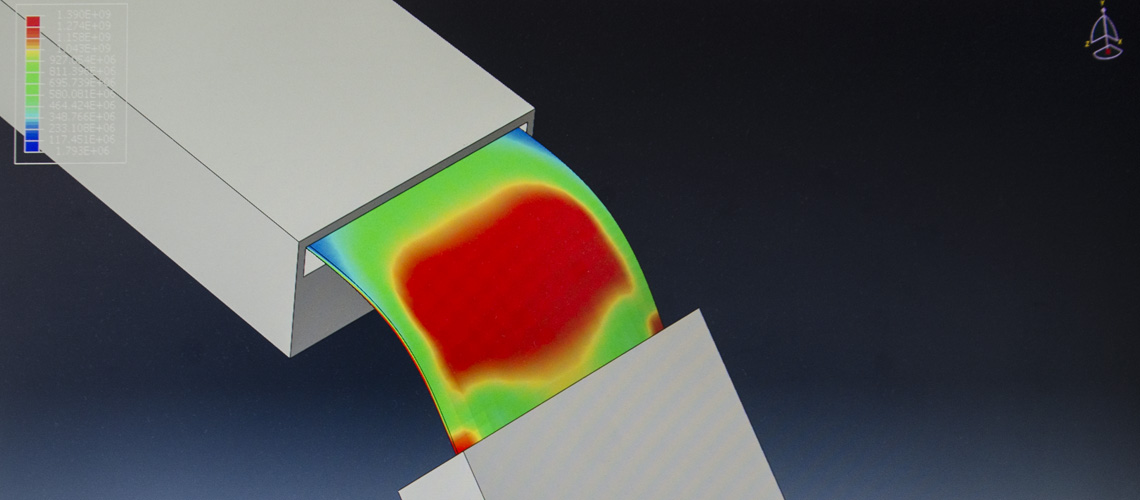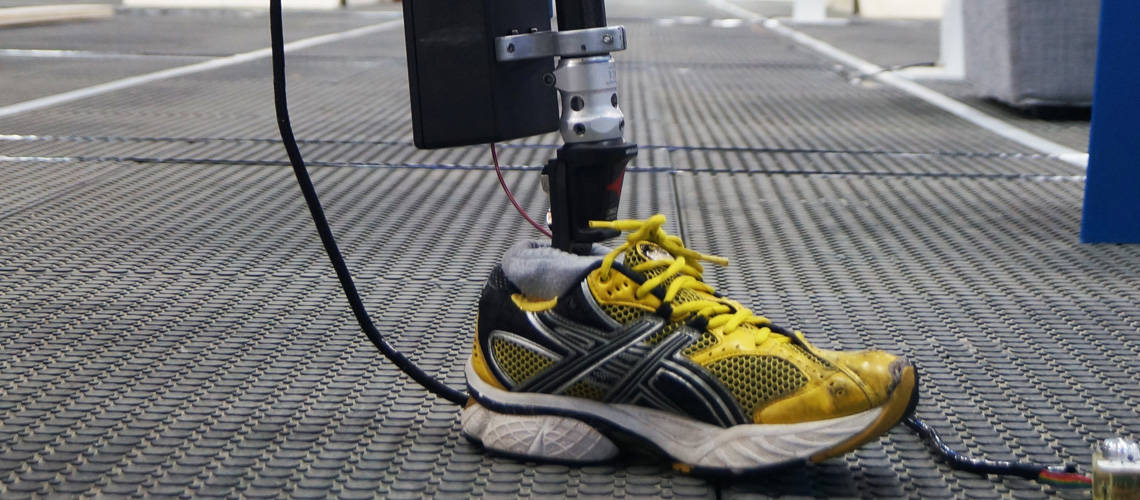The degree of Engineering in Biomedical Systems is of indirect admittance, so the applicants are only students coming from the first semesters of one the degrees of the Mechanical and Industrial Engineering Division and of the Division of Electrical Engineering of the Faculty of Engineering, that cover the following selection criteria:
1. Be a regular student of the degrees taught in the Faculty of Engineering.
2. Complete the credits of the first semester, preferably with a minimum average of 8.0 (eight).
3. Obtain an evaluation of approved in the Seminar of Biomedical Systems. The mode of delivery of this seminar will be the responsibility of the Career Committee of Biomedical Systems Engineering.
4. The selection and admission of applicants is carried out by the Admittance Subcommittee considering the following:
• The student must apply in writing for the enrollment in the Biomedical Systems Engineering career.
• Students must take a psychometric test, with the objective of knowing their cognitive abilities, motivation, working behavior under pressure and without pressure, and thus, assess if they have actual affinity to the degree of Engineering in Biomedical Systems. The exam will be elaborated in collaboration with the Executive Board of Educational Evaluation of UNAM.
• The student must have an interview with the members of the Admissions Subcommittee.
• The student must verify that he/she has passed a reading comprehension test of the English language, through a certificate issued by the Foreign Language Teaching Center (CELE) of UNAM, or another language center of the Faculties of Higher Education at UNAM, or duly certified proof of a similar evaluation applied in another faculty or school at UNAM, designed to fulfill as a requirement for graduation at the undergraduate level. In addition, a certificate issued by an organization outside the UNAM may be considered valid, by means of a certificate of equivalence issued by the Head of the Faculty, who will designate a committee dedicated to keeping a catalog of authorized certification bodies up to date, indicating the required level in each case.
The quota of this degree will be proposed by the Biomedical Systems Engineering Career Committee, in agreement with the Coordination of Social Service of the Faculty of Medicine of UNAM and will be presented to the Technical Council of the Faculty of Engineering for approval.
The Admissions Subcommittee will be composed of five professors from the Biomedical Systems Engineering Career Committee.
Taken from the document "Syllabus for the degree in Engineering in Biomedical Systems", approved by the Technical Council of the Faculty of Engineering on May 9, 2014, by the Academic Council of the Area of Physical-Mathematical Sciences and Engineering on October 29, 2014 and by the University Council on December 5, 2014.
The student who decides to join this career program must complete the area of Physical-Mathematical Sciences in Preparatory School, since it requires to possess solid knowledge of mathematics in algebra, analytical geometry and differential and integral calculus of functions of one variable; you must also have solid knowledge of physics, particularly in matters related to classical mechanics, electricity, magnetism, as well as general chemistry and computer skills. It is also desirable that you have knowledge of English, at least at the level of understanding texts. Regarding skills, it is important that you have a willingness to work as a team member, ability to analyze and synthetize, and adapt to new situations as well as creative spirit.
The specific entrance profile of the Biomedical Systems Engineering degree is the following. The student who decides to study in this area must:
• Have a general knowledge of chemistry, which is necessary in addition to possessing solid knowledge of mathematics and physics.
• Be interested in Health Sciences, in addition to having computer skills and knowledge of English, at least at the level of understanding texts.
Graduates must possess capacities for innovation, potential to contribute to the creation of technologies and entrepreneurial attitude, with social sensitivity and professional ethics, and with potential and vocation to become a factor of change.
Specific profileKNOWLEDGE
The graduate of Engineering in Biomedical Systems is the professional with solid knowledge in physics, mathematics and chemistry, as well as a strong acquaintance with the fundamental concepts of physiology, anatomy and biology, which will apply in the areas of biomechanics, biomedical instrumentation and hospital logistics.
The graduate will be characterized by:
• His/her ability to integrate the knowledge acquired in Engineering and Health Sciences, in order to design, implement and develop new technologies in the biomedical environment of the hospital.
• His/her capacity for analysis and synthesis, being prepared to innovate, create technology, perform basic and applied research, and keep up to date, interacting with physicians, biologists and mechanical, mechatronics, electronics and industrial engineers, among other related areas.
• Being leaders in their field, whether in academia, research or the industrial and service sectors, performing the functions of planning, management, evaluation and control of hospital systems, seeking the highest efficiency, productivity, safety and quality.
SKILLS
The graduate of this area may:
• Design, build, operate and maintain equipment for use in biomedical systems.
• Manage, evaluate, compare and select equipment for biomedical systems.
• Model, simulate and interpret the behavior of biomedical systems.
• Develop, operate and maintain productive and operational processes in health sciences.
• Create, with a business attitude, new sources of employment.
• Integrate and coordinate people and interdisciplinary groups.
• Participate in research programs and graduate studies.
ATTITUDES
The attitudes of the graduate of Engineering in Biomedical Systems from the professional point of view are:
• Be creative and innovative.
• Be disciplined and dynamic.
• Be an entrepreneur with leadership and initiative.
• Have confidence in your academic preparation.
• Have an open mind oriented toward problem solving in engineering.
• Be honest, responsible and critical.
• Be updated, overcome and competent in your profession.
• Take responsibility for the care of the environment.
• Act with high ethical principles in all its activities.
Regarding social attitudes, you should develop the following:
• Awareness of national issues, based on knowledge of the country's reality.
• Vocation of professional service.
• Promote change in mentality in the face of international competitiveness.
• Humanist attitude and service towards society.
• Commitment to preserving the environment.
The graduate of the Biomedical Systems Engineering degree is characterized by his ability to combine the knowledge acquired in engineering and in health sciences to design, implement, maintain and develop new technologies in the medical environment in the hospital, interacting with physicians and with mechanical, mechatronic, electronic and industrial engineers, among other related professionals.
The graduate of the hospital logistics area will be able to efficiently and effectively manage medical units that provide health care and hospital care, guaranteeing the best quality care and satisfaction of the specific needs of medical units, with a competitive, human and productive approach.
The graduate of the biomedical instrumentation area will be the professional specialized in designing, integrating, operating, maintaining, improving and generating equipment for biomedical applications, as well as acquire, personalize, process and monitor the biological signals of the human body.
The biomedical graduate will be able to design, improve and generate medical assistance technology such as prosthetic devices, medical instruments, hospital and rehabilitation equipment, and will be able to improve the environment and the working situation, based on data studies of anatomical and physiological techniques applied to problems of mutual adaptation between man and his environment, as well as to ensure the optimum development of human activities, he/she will also conduct research in the areas of biomaterials, biothermofluids and anthropometric analysis, which can be applied in the development of biomedical systems.





